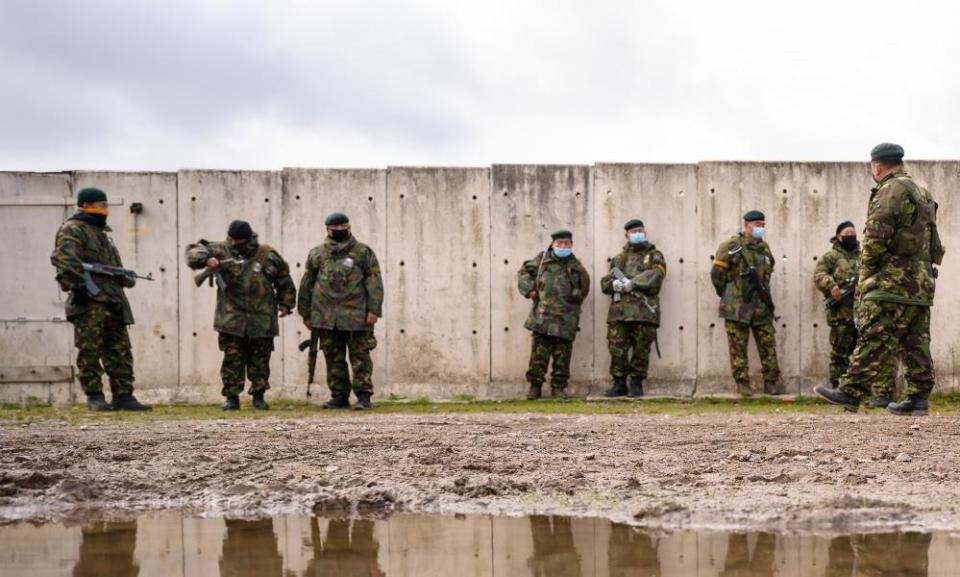UK trained military of 13 countries with poor human rights records

The UK government has trained the armies of two-thirds of the world’s countries, including 13 it has rebuked for human rights violations.
An anti-arms trade organisation has called for an investigation into the use of UK military training by other countries to determine whether it has been used to perpetrate human rights abuses.
The call from Campaign Against the Arms Trade came after the Guardian obtained a freedom of information response from the Ministry of Defence that revealed in the years 2018/19 and 2019/20, the government provided training on UK soil to around two-thirds of the world’s countries – 130 countries in 2018/19 and 120 in 2019/20 – including some with appalling human rights records.
The countries with concerning human rights records that received military training from the UK include Bahrain, China, Saudi Arabia, Sri Lanka, Sudan and Zimbabwe.
While the Ministry of Defence provided a full list of military training provided in the UK to foreign countries, it declined, on the grounds of the cost of obtaining this information, to respond to questions about UK military training provided overseas to other countries.
The UK government produces an annual list of countries it has human rights concerns about. These 30 countries include 13 that it has provided military training to, including Bahrain, Egypt, Iraq and Saudi Arabia.
The UK government has a list of 20 countries for which an arms export embargo is in place. The government said guidance relating to this list applied until 31 December 2020. It has provided military training to eight countries on the list where an arms embargo is in place, including Afghanistan, Iraq, Somalia and Sudan.
In 2018/19 the government provided 1,169 separate courses in the UK. In 2019/20 it provided 1,096 courses.
The introduction to the British Army International Defence Training catalogue stated of the UK: “It is rightly acknowledged as a leader in the provision of world-class military training.”
Courses in the catalogue include preparing and commanding armoured troops on operations, infantry courses, including a platoon commander battle course, which involves five weeks of live firing tactical training and the throwing of live grenades on purpose-built ranges, offensive and defensive operations in jungle environments, and instruction in how to operate 81-millimetre and 60-millimetre mortars. There is also training on offer for snipers in basic and advanced marksmanship.
The brochure also includes courses in gentler aspects of military life, such as music courses for pipers, photography courses and training for military chefs.
Andrew Smith of Campaign Against the Arms Trade said: “This raises very serious questions for the government. Many of these armies are responsible for upholding brutal and repressive laws, and have been accused of torture and other human rights violations. UK forces should not be doing anything to support or strengthen them.
“The message that this training sends to those forces is one of support. It shows a total disregard for people who have suffered under these cruel regimes. There must be a full investigation into the forces that have taken part in UK training to find out if any of those personnel or units have been implicated in abuses.”
A Ministry of Defence spokesperson said: “Defence engagement makes an important contribution to international diplomacy. Military support is determined on a country-by-country basis, often including the provision of peacekeeping, medical, and language training.
“UK engagement is informed by a thorough assessment of potential risks relating to human rights and international law, along with options to mitigate them and opportunities to promote compliance with international standards, including international humanitarian law.”

 Yahoo Finance
Yahoo Finance 